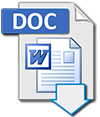Exploring the Professional Development of Generation Z Teachers: A Qualitative Case Study on Enhancing Digital-Based Learning in Elementary Schools
DOI:
https://doi.org/10.29240/jsmp.v9i2.14492Keywords:
Teacher Professionalism, Generation Z, Digital Learning, Digital Competence, Instructional InnovationAbstract
This study explores the development of professionalism among Generation Z (Gen Z) teachers in enhancing the quality of digital-based learning in elementary schools. The research focuses on their adaptability, digital competence, and innovative teaching strategies in the context of rapidly evolving educational practices. Using a qualitative case study design, data were collected through in-depth interviews with Gen Z teachers at SD Muhammadiyah and analyzed to reveal patterns of digital pedagogy. The findings indicate that Gen Z teachers demonstrate strong digital literacy, actively employing interactive presentation applications, online learning platforms, and educational social media to enrich the learning process. Their professionalism is reflected in their commitment to self-directed learning, collaboration with colleagues, and reflective teaching practices. Supporting factors for professional development include institutional support, participation in teacher learning communities, and continuous training opportunities. However, challenges remain, particularly limited school facilities and students’ diverse adaptability to digital environments. This study contributes to the discourse on teacher professionalism by emphasizing the pivotal role of Gen Z teachers in advancing digital pedagogy. It concludes that Gen Z teachers possess considerable potential to improve learning quality through digital innovation, yet sustained institutional support is crucial to maximize their impact.
Downloads
References
Ahrofi, S. (2025). OPTIMIZATION OF TEACHERS’DIGITAL COMPETENCE IN FACING ARTIFICIAL INTELLIGENCE (AI) BASED LEARNING TRANSFORMATION IN THE ERA OF SOCIETY 5.0. The Fourth International Conference on Government Education Management and Tourism, 4, 104.
Akour, M., & Alenezi, M. (2022). Higher education future in the era of digital transformation. Education Sciences, 12(11), 784.
Anis, M. (2024). Teacher professional development in the digital age: Addressing the evolving Needs Post-COVID. International Journal for Multidisciplinary Research, 6(1), 1–14.
Aris, A. S., Haqq, A. A., & Winarso, W. (2022). A skill application model to improve teacher competence and professionalism. International Journal of Educational Methodology, 8(2), 331–346.
Bergmark, U. (2023). Teachers’ professional learning when building a research-based education: context-specific, collaborative and teacher-driven professional development. Professional Development in Education, 49(2), 210–224.
Binabise, N. J. P., Cariaga, J. A. S., Peralta, E. A., Palabay, R. J. O., & Ancheta, O. J. (2024). My ideal teacher: the Gen Z’s choice. Diversitas Journal, 9(4).
Braun, V., Clarke, V., & Hayfield, N. (2022). ‘A starting point for your journey, not a map’: Nikki Hayfield in conversation with Virginia Braun and Victoria Clarke about thematic analysis. Qualitative Research in Psychology, 19(2), 424–445.
Bubou, G. M., & Job, G. C. (2022). Individual innovativeness, self-efficacy and e-learning readiness of students of Yenagoa study centre, National Open University of Nigeria. Journal of Research in Innovative Teaching & Learning, 15(1), 2–22.
Caena, F., & Vuorikari, R. (2022). Teacher learning and innovative professional development through the lens of the Personal, Social, and Learning to Learn European key competence. European Journal of Teacher Education, 45(4), 456–475.
Cain, C. C., Morgan Bryant, A., Buskey, C. D., & Meyers Ferguson, Y. (2022). Generation Z, learning preferences, and technology: An academic technology framework based on enterprise architecture. The Journal of the Southern Association for Information Systems, 9(1), 1–14.
Chindomu, R. (2024). Technology Practices to Promote Equity, Access, and Quality in South African Higher Education: A Multi-case Study. University of the Witwatersrand, Johannesburg (South Africa).
Cid-Martínez, L., Aznar-Díaz, I., Gómez-García, G., & Martínez-Domingo, J.-A. (2025). A Systematic Review on the Level of Digital Competence of In-Service Spanish Teachers According to the DigCompEdu Framework. Education Sciences, 15(6), 655.
Debasu, H., & Yitayew, A. (2024). Examining elements of designing and managing of creating inclusive learning environment: Systematic literature review. International Journal of Special Education, 39(1), 33–43.
Hammad, H. S. (2025). Teaching the Digital Natives: Examining the Learning Needs and Preferences of Gen Z Learners in Higher Education. Transcultural Journal of Humanities and Social Sciences, 6(2), 214–242.
Irby, B. J., Pashmforoosh, R., Lara-Alecio, R., Tong, F., Etchells, M. J., & Rodriguez, L. (2023). Virtual mentoring and coaching through virtual professional leadership learning communities for school leaders: A mixed-methods study. Mentoring & Tutoring: Partnership in Learning, 31(1), 6–38.
Isley, R. (2022). From Boomers to Gen Z: Building Teacher Efficacy Towards 21st-Century Teaching Practices. Northeastern University.
Khan, A. A., Hussain, T., Al Siyabi, M., Al Shibli, A., Hussain, S., & Pillai, J. R. (2024). Challenges and Prospects of Cutting-Edge Technology in Education. Studies on Education, Science, and Technology 2024, 104.
Lesinskis, K., Mavlutova, I., Spilbergs, A., & Hermanis, J. (2023). Digital transformation in entrepreneurship education: The use of a digital tool KABADA and entrepreneurial intention of generation Z. Sustainability, 15(13), 10135.
Letavia, C., Saputri, D. D., & Fathurrochman, I. (2025). Pemasaran Jasa Pendidikan Berbasis Nilai: Kajian Teoritis dan Empiris pada Pondok Pesantren Indonesia. Jurnal TARBAWI, 16(1), 118-136. Retrieved from https://jurnal.alfithrah.ac.id/index.php/tarbawi/article/view/1157. https://doi.org/10.36781/tarbawi.v16i01
Mabe, A., Brown, K., Frick, J. E., & Padovan, F. (2022). Using Technology to Enhance Project-Based Learning in High School: A Phenomenological Study. Education Leadership Review of Doctoral Research, 10, 1–14.
Mayildurai, R., Karthik, K., Ashokkumar, R., & Daniel, S. (2024). Teaching Methodologies for Engaging Generation Z Learners: Strategies, Challenges, and Implications. Transforming Education for the 21st Century-Innovative Teaching Approaches; OrangeBooks Publication: Bhilai, India, 152.
Meletiou-Mavrotheris, M., & Paparistodemou, E. (2024). Sustaining teacher professional learning in STEM: Lessons learned from an 18-year-long journey into TPACK-guided professional development. Education Sciences, 14(4), 402.
Mukhlisa, M., Sulisworo, D., & Hidayati, D. (2025). Digital Literacy of Generation Z: Challenges for Teachers in the Era of Demographic Bonus. Journal of Education and Teaching (JET), 6(2), 500–517.
Nissilä, S.-P., Karjalainen, A., & Koukkari, M. (2022). It is the shared aims, trust and compassion that allow people to prosper: Teacher educators´ lifelong learning in competence-based education.
Putra, L. D., Hedrina, L., Idam, D. A., & Arifa, D. N. (2024). Use of Digital Media and Technology in the Learning Process By Teacher Sdit Baitussalam. Progres Pendidikan, 5(2), 188–192.
Quimpan, M. P., & Bauyot, M. M. (2025). Digital Natives in the Classroom: A Case Study on the Integration of Innovative Management Practices to Enhance the Teaching Performance of Generation Z Teachers.
Rajaram, K. (2023). Future of learning: Teaching and learning strategies. In Learning Intelligence: Innovative and Digital Transformative Learning Strategies: Cultural and Social Engineering Perspectives (pp. 3–53). Springer.
Regmi, B. N. (2024). Understanding the Gen Z: Facilitating the Learners in the Literature Classroom. DMC Journal, 9(8), 63–78.
Sætra, H. S., & Danaher, J. (2022). To each technology its own ethics: The problem of ethical proliferation. Philosophy & Technology, 35(4), 93.
Saputri, D. D., Letavia, C., & Fathurrochman, I. (2025). Integrasi Strategi Pemasaran Jasa Pendidikan dan Quality Assurance dalam Meningkatkan Mutu serta Daya Saing Lembaga Pendidikan di Indonesia. AL-MANAR: Jurnal Komunikasi dan Pendidikan Islam, 14(2), 283-303. https://doi.org/10.36668/jal.v14i2.1535.
Sigalla, L. E., & Kimario, H. F. (2025). Customizing Classrooms: How Teachers Can Adapt Education to Fit Student Needs. European Journal of Contemporary Education and E-Learning, 3(3), 38–59.
Singun, A. J. (2025). Unveiling the barriers to digital transformation in higher education institutions: a systematic literature review. Discover Education, 4(1), 37.
Swandi, A., Fauzan, A., Arsyad, S. N., & Rahmadhanningsih, S. (2024). Digital-Based Learning in Lagging Areas: Students’ Problems and Expectations. AL-ISHLAH: Jurnal Pendidikan, 16(3), 3227–3236.
SWARGIARY, K. (2025). The Adaptive Ecosystem of Learning: Principles and Practices for Cultivating Flourishing Minds. ERA, US.
Tavares, M. C., Azevedo, G., & Marques, R. P. (2022). The challenges and opportunities of era 5.0 for a more humanistic and sustainable society—a literature review. Societies, 12(6), 149.
Veluvali, P., & Surisetti, J. (2022). Learning management system for greater learner engagement in higher education—A review. Higher Education for the Future, 9(1), 107–121.
Verawati, N. N. S. P., & Nisrina, N. (2025). Reimagining physics education: addressing student engagement, curriculum reform, and technology integration for learning. International Journal of Ethnoscience and Technology in Education, 2(1), 158–181.
Vural, H. (2025). TRANSLATION-FOCUSED TECHNOLOGICAL COMPETENCE: TRADITION AND INNOVATION. Cumhuriyet Üniversitesi Fen-Edebiyat Fakültesi Sosyal Bilimler Dergisi, 49(1), 85–95.
Yu, H. (2023). Reflection on whether Chat GPT should be banned by academia from the perspective of education and teaching. Frontiers in Psychology, 14, 1181712.
Zhang, C. (2024). Artificial Intelligence and the Changing Role of Teachers: the Path from Knowledge Transmitter to Learning Designer.
Downloads
Published
How to Cite
Issue
Section
Citation Check
License
Copyright (c) 2025 Arga Pradana, Achadi Budi Santosa, Dian Hidayati

This work is licensed under a Creative Commons Attribution-NonCommercial-ShareAlike 4.0 International License.


















